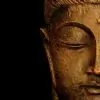Originally posted by: -Aarya-
@RTH, @charminggenie, @LeadNitrate
I agree to disagree :)
The real question here is crime justified? For example, let's take Krishna into consideration, he always talked about dharma and adharma, but during the war, he used deceit to kill most of the great warriors, did he not practice what he taught? In this case how can he do adharma to establish dharma...
thats okay, it was pleasure debating you 😳
Let me try to put down what I understand
crime is not justified.
but what is crime and what is justice or punishment?
When your country is attacked say, should you not fight back and kill the invaders , drive them away by any means or should you debate if it is crime or not.
krishna using deceit:
He was teaching all of them and us a lesson.
one cannot lead a life by the law of jungle ( might is right, taking what is not their by deceit or by force) and then expect to end their life by law of dharma equal chance. if you live by law of jungle, you would die by it, no matter how you try to avert it
krishna here can be a symbolic representation of justice of time/world
When dharma was in question, they stuck to their petty dharma and gave tacit support to unfairness, actively conspired to it too.
Three of them, Bheesma, drona and karna were taught by parasuram, another of Vishnu's avatar. The lesson given was sacred, to be used to uphold justice and fairness.
Bheesma used his to bind himself to a throne by pledge, which had him witness one of the most appalling crime of society, molestation and attempted rape.
Drona used his for his greed and petty revenge against drupad, which started off a cyclle.
karna used his to support his best friend, even when the said friend was not right.
So as krishna, Vishnu ruthlessly plotted death of these 3.
One dies after suffering so many arrows of sorrowness, seeing his own dynasty descend in madness, so many women widowed, children orpahned.
one dies after suffering the biggest insult to himself. on 14 night and 15 day Drona was using divyastra to elminate common foot soldiers who had no protection against him, he forgot all rules and humanity. He died in hands of his student ( he had taken Dhri as his student even though he knew of the destiny) on hearing the fake news of his son's death , from the mouth of the one person he knew could never lie
karna died, when he was not even armed, trying to raise his chariot wheel.
Each of them represent strength and righteousness which stands aside, despite their ability , when naturw/mother earth/society is raped and molested.
Each died a death no one would wish for.
But does that mean this cruelty did not exact it prices? It did, for all the pandavas and even krishna.
There comes another lesson, even when u r fighting a war or using violence for a good cause, you have to pay the price.
To eradicate evil is not easy, no matter how good ur intentions are, you have to pay a price
























